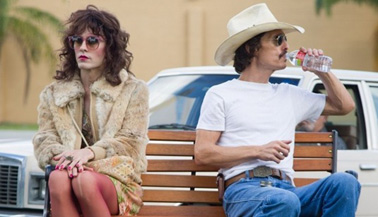|
|
The 400-Word Review: Dallas Buyers ClubBy Sean CollierNovember 25, 2013
In Dallas Buyers Club, this is represented as a response to Woodroof’s anger. He’s furious at the diagnosis, and quickly channels that rage into disgust with the system that wants him to take potentially harmful drugs (he’s being fed high doses of the drug AZT) instead of treatments already available in other parts of the world. If he becomes a crusader for AIDS rights, it’s reluctantly; if he becomes a friend to Texas’s burgeoning gay community, it’s with hesitation. The story is worth telling, and director Jean-Marc Vallée vividly recreates Woodroof’s often-seedy world. Beyond the politics, the emotional core of the characters is razor sharp, as are the portrayals; Jared Leto’s turn as a drag queen turned Woodroof gofer is moving and captivating. The trouble comes in trying to determine where the film stands on the various political questions it raises, but does not answer. It seems that this is a deliberate choice, but it invites such varying interpretations that I can’t fully praise the film; it almost seems to invite those of certain mindsets to claim false messages are laid into the proceedings. That fuzziness is an inevitable byproduct of the project, and Dallas Buyers Club is still a very good film in spite of it. There was probably no better way to make this story into a film; unfortunately, that fact lowers Dallas Buyers Club’s standing below true greatness. Sean Collier is the Associate Editor of Pittsburgh Magazine and a member of the Broadcast Film Critics Association. Read more from Sean at pittsburghmagazine.com/afterdark
[ Read more 400 word movie reviews ]
[ View other movie reviews ]
[ View other columns by Sean Collier ] [ Email this column ]
|

|
|
|

|
Thursday, October 31, 2024
© 2024 Box Office Prophets, a division of One Of Us, Inc.


